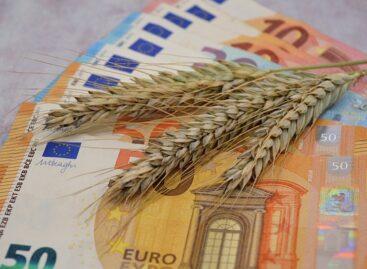20 years of Hungary in the EU: how has the forint exchange rate changed?
On May 1, 2004, ten new states joined the European Union, including Hungary. In our series of articles, we use one indicator to explore how the situation of our country has changed during our 20-year EU membership. The subject of this article is the change in the forint exchange rate.
In the years following our accession to the European Union, the domestic currency was relatively stable compared to the euro, partly due to the strengthening of investor confidence as a result of our deeper European integration. Of course, there were also short-term fluctuations, a good example of which was the devaluation of the forint following the leaked budget data. Despite everything, the euro-forint exchange rate was essentially the same in 2004 and 2008.
As in most small and open economies, the 2008 global financial crisis resulted in a sharp devaluation of our currency. In just one year, the domestic currency weakened by nearly 12% compared to the euro. After that, the goals of economic policy changed, the central bank used conventional and non-conventional means of forint devaluation. The goal was to increase the competitiveness of exports: if the forint is weak, the sales revenue of exporters in foreign currency is worth more in forints at home. With this, the domestic government also wanted to encourage the inflow of foreign capital investments, since the weakening forint, measured in euros, reduces the cost of Hungarian labor (and assets), if we disregard other circumstances. On the other hand, the possibility of working abroad will increase in value for Hungarians, and vacations in Hungary will also become cheaper for tourists.
However, the deteriorating exchange rate is unfavorable for the population and the corporate sector that buys imported goods. In addition, in addition to the weakening forint, the financing of foreign holidays is becoming more and more expensive.
Related news
Annual inflation in the OECD slowed to 3.7 percent in December last year
🎧 Hallgasd a cikket: Lejátszás Szünet Folytatás Leállítás Nyelv: Auto…
Read more >Beef: Statistics are lagging behind despite a 40% increase in store prices
🎧 Hallgasd a cikket: Lejátszás Szünet Folytatás Leállítás Nyelv: Auto…
Read more >Related news
Lidl launches campaign with tennis star Steffi Graf
🎧 Hallgasd a cikket: Lejátszás Szünet Folytatás Leállítás Nyelv: Auto…
Read more >Coca-Cola To Discontinue Frozen Products In US And Canada
🎧 Hallgasd a cikket: Lejátszás Szünet Folytatás Leállítás Nyelv: Auto…
Read more >Amazon expanding same-day prescription delivery to 4,500 cities & towns
🎧 Hallgasd a cikket: Lejátszás Szünet Folytatás Leállítás Nyelv: Auto…
Read more >









